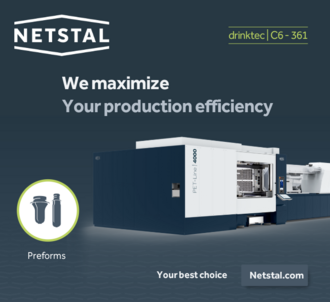The first phase of the program focused on collecting existing and live data from across the UK plastics supply chain to spark new ideas for waste reduction. SAP announced the next phase of Plastics Cloud at London Design Festival taking place September 14–22.
In this second phase, SAP said it would work with partners to extend Ariba Network, the world’s largest business-to-business network, to create a new global marketplace for suppliers of recycled plastics and plastic alternatives. The goal is to use Ariba Network to connect buyers with new recycled plastics suppliers such as Bantam Materials UK Ltd and others certified by organizations such as OceanCycle Inc. OceanCycle is a social enterprise focused on creating traceability in plastic supply chains and helping businesses integrate ocean plastics into their products.
Plastics Cloud enabled by Ariba Network will allow brands to connect more sustainably with new recycled plastics and alternative supply sources through waste picker communities. About 40 percent of plastic produced globally is used in product packaging, but less than one fifth of plastic is recycled, creating serious environmental and human health problems, according to National Geographic. Some US$10 billion worth of packaging flows through Ariba Network annually.
“Even a small portion of global spend on packaging redirected to precertified suppliers of recycled plastics and alternatives can have a tremendous impact, ranging from the livelihood of waste pickers around the world to the environment and quality of the end products,” said Padmini Ranganathan, global vice president, Sustainability and Supplier Risk Solutions, SAP Ariba. “Ariba Network, together with our cloud-based procurement solutions, can help channel recycled plastic to a new recycle market economy. This empowers supply sources to build trusted buyer partnerships while positively impacting the environment and delivering value to brands.”
Raffi Schieir, director, Bantam Materials UK Ltd, said: “Eighty percent to 90 percent of ocean plastic starts on land. Hence, incentivizing collection from at-risk coastlines around the world will significantly reduce plastic contamination of our oceans. Processing that plastic back into the highest-quality materials at industry-required volumes, along with the certified traceability that OceanCycle provides, will drive meaningful impact. This effort also helps our customers achieve their sustainability targets and provides a true benefit to the environment that consumers will appreciate.”
This development follows the collaborative efforts of SAP with global consumer product brands such as The Procter & Gamble Company, The Coca-Cola Company and Nestle S.A. Their commitment to finding solutions to scale recyclable procurement and improve the social and environmental impact of their products was demonstrated at the Ocean Plastics Leadership Summit.
“At the core of the plastic problem is the economic value of plastic waste,” said Jens Amail, managing director, SAP UK and Ireland. “For long-lasting change to be effective, we need to both innovate into new materials as well as increase the value of our existing plastic waste to divert waste streams away from the natural environment. Being a responsible business is no longer a ‘nice to have,’ it’s an imperative. SAP has worked relentlessly in the past 10 years to make our customers and partners run better and greener, and ultimately improve people’s lives. I am proud that, with this initiative, the United Kingdom is at the forefront of innovation in that field.’’
For the week-long London Design Festival, SAP has collaborated with architect Sam Jacob to create an art installation in the grand entrance of the Victoria and Albert Museum that explores the role of design and technology in reducing ocean plastics.
This year marks the 10th anniversary at SAP of creating sustainable impact, and initiatives such as Plastics Cloud serve to highlight one of the many ways SAP is working to create a more sustainable world for generations to come.






